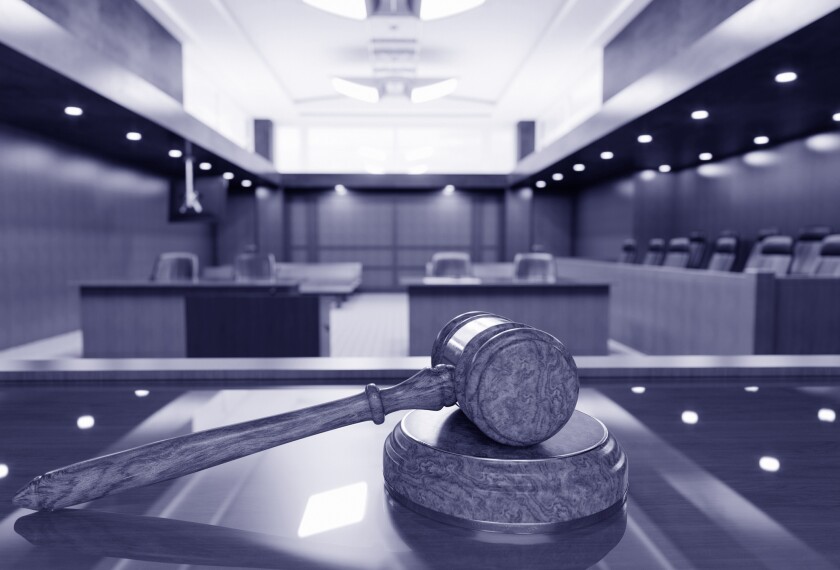A federal appeals court has ruled that California’s COVID-19 orders closing private schools infringed a fundamental federal constitutional right of parents to choose their children’s schools. The state’s orders last year barring in-person instruction at private schools were not narrowly tailored to advance a compelling state interest, the court said.
At the same time, the divided three-judge panel of the U.S. Court of Appeals for the 9th Circuit, in San Francisco, rejected a challenge to California’s closures of public schools, ruling that because there is no fundamental federal right to a public education, the state’s orders need only be rationally related to abating the pandemic.
The July 23 decision in Brach v. Newsom is arguably more theoretical than practical at this point, as California’s current guidance calls for maximizing in-person instruction. The state argued that the lawsuit filed by the public and private school parents in July 2020, early in the pandemic, was moot because of the evolution of the state’s orders and the fact that most of the schools mentioned in the suit reopened during the 2020-21 school year.
But the appeals court majority held that the case was not moot because, among other reasons, current state guidance “does not expressly foreclose the possibility that school closures could be required in the future.”
The parents, backed by the Center for American Liberty in Pittsburgh, Pa., argued in legal declarations that their children were being harmed by remote learning and that public and private schools had taken steps last year to safely reopen but were barred from doing so by the state’s orders and system of classifications of each county into tiers of COVID risk.
A federal district court issued summary judgment to the state with regard to public school and private school parents.
But the 9th Circuit court panel, in its 2-1 decision, drew a distinction between the public school parents’ claims and those of the private school parents.
The public school parents’ 14th Amendment due-process and equal-protection claims failed because the U.S. Supreme Court has ruled that there is no federal constitutional right to a public education, the appeals court said.
The 9th Circuit court said “ the Supreme Court has repeatedly declined to accept the proposition that education is a ‘fundamental right,’” citing the foundational 1973 case for that idea, San Antonio Independent School District v. Rodriguez.
California’s rules about public school closures during the pandemic “readily satisfy” the so-called rational-basis test, the court held.
When it comes to the claims of the private school parents (in the same suit), though, it was a different story.
The private school parents based their claim on a fundamental right to direct their children’s upbringing and schooling stemming from two Supreme Court decisions from the 1920s—Meyer v. Nebraska (1923) and Pierce v. Society of Sisters (1925).
“As historically understood, the Meyer-Pierce right necessarily embraced a right to choose in-person private-school instruction, because ... such instruction was until recently the only feasible means of providing education to children,” Judge Daniel P. Collins wrote for the majority in the California case.
“We conclude that the private-school plaintiffs have established that the state’s prohibition on in-person instruction deprives them of a core right that is constitutionally protected under Meyer and Pierce,” Collins continued. “The only remaining question is whether that deprivation is adequately justified under the appropriate level of scrutiny.”
The court said the state had not shown that its COVID-19 orders restricting private schools were narrowly tailored to serve the state’s compelling interests. And key to the majority’s analysis was the Supreme Court’s decision last fall in Roman Catholic Diocese of Brooklyn v. Cuomo, which blocked enforcement of New York State’s COVID-related attendance caps at religious services.
“By prohibiting in-person instruction at the relevant plaintiffs’ [private] schools, California effectively imposed an attendance cap of zero, which is much more restrictive than the numerical caps struck down by the Supreme Court for religious services in Diocese of Brooklyn,” Collins said.
The court said the plaintiffs had presented evidence that “that California had failed to narrowly tailor its response inasmuch as it stubbornly adhered to an overbroad school-closure order even as evidence mounted that COVID’s effects exhibit a significant age gradient, falling much more harshly on the elderly and having little impact, statistically speaking, on children.”
The majority reversed the summary judgment for the state on the private school plaintiffs’ due-process claim, and it ordered the lower court reconsider an equal-protection claim.
Writing in dissent, Judge Andrew D. Hurwitz said the “dramatically changed legal landscape” made the case moot. But the majority’s treatment of the private school parents’ claims was “far more troubling.”
“The majority errs in both (1) finding that the narrow Meyer-Pierce right protects a parent’s choice of a particular mode of education and (2) concluding that any law impacting the Meyer-Pierce right is subject to strict scrutiny,” Hurwitz said.
“Relying on established scientific consensus about how the virus spreads, California temporarily restricted in-person schooling alongside a host of other activities,” the dissenting judge said. “These restrictions have now largely been lifted as the threat of the pandemic has waned. The challenged orders can thus hardly be said to be unreasonable, and, as a result, should be upheld.”






